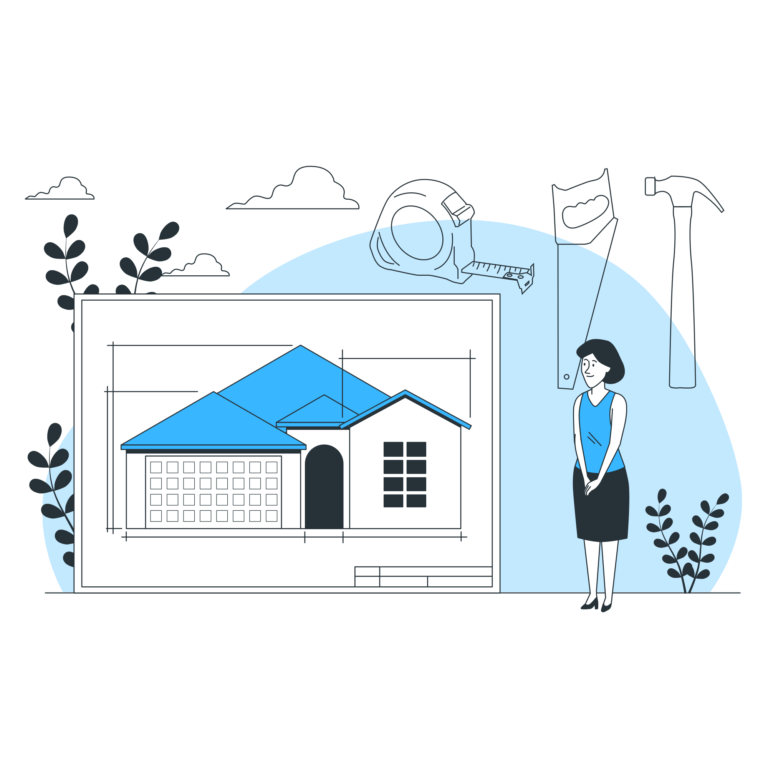- Commercial property is subject to ordinary income tax
- Private property is taxed separately
- Tax rate decreases with length of ownership
- The commune levies a tax equivalent to 60% of that charged by the canton.
Who is affected by property gains tax in the canton of Vaud?
Real estate gains tax in the canton of Vaud applies to anyone realizing a capital gain on the sale of a property located in the canton. The following groups of taxpayers are concerned:
- Individuals: Gains realized on the sale of real estate forming part of their private wealth are subject to this tax.
- Farmers and foresters: On the sale of real estate related to their business.
- Taxpayers exempt from income or profit tax: In this case, capital gains realized on real estate are taxable.
Exemption
Real estate gains realized by public entities (canton, communes) or certain institutions (e.g. recognized non-profit associations) are exempt.
In addition, real estate gains of less than CHF 5,000 in a tax year are also exempt.
Property gains tax scale Vaud
The real estate gains tax in the canton of Vaud is calculated using a schedule of degressive rates, based on the duration of property ownership. The longer the property is held, the lower the rate. Here are the main rates according to the years of ownership:
- Holding period
- Up to 1 year
- 1 - 2 years
- 2 - 3 years
- 3 - 4 years
- 4 - 5 years
- 5 - 6 years
- 6 - 7 years
- 7 - 8 years
- 8 - 9 years
- 9 - 10 years
- 10 - 11 years
- 11 - 12 years
- 12 - 13 years
- 13 - 14 years
- 14 - 15 years
- 15 - 16 years
- 16 - 17 years
- 17 - 18 years
- 18 - 19 years
- 19 - 20 years
- 20 - 21 years
- 21 - 22 years
- 22 - 23 years
- 23 - 24 years
- from 24 years
- Tax Rate
- 30%
- 27%
- 24%
- 22%
- 20%
- 18%
- 17%
- 16%
- 15%
- 15%
- 14%
- 14%
- 13%
- 13%
- 12%
- 12%
- 11%
- 11%
- 10%
- 10%
- 9%
- 9%
- 8%
- 8%
- 7%
Pour les années d’occupation prouvées par le contribuable, la durée de possession est doublée, ce qui permet de bénéficier d’un taux réduit plus rapidement.
How to calculate property gains tax?
The tax calculation is based on the difference between the acquisition price and the proceeds of disposal, taking into account justified expenses related to the property.
1. Determine the proceeds of disposal (or the amount of the sale)
Disposal proceeds are everything the seller receives for the sale of his property. It includes :
- The sale price of the property
- Additional services: If the buyer gives something else in addition to the price (for example, another property or an asset in exchange).
- Indemnities: If the seller receives money for rights or restrictions on the property (such as a right of way or an easement).
2. Deduct expenses that increase the value of the property
When calculating the taxable gain, you can deduct certain expenses that have improved or increased the value of your property, such as :
- Renovations (e.g. new kitchen or home extension)
- Improvements (e.g. adding a terrace or solar panels)
- Purchase costs related to value (taxes paid at time of purchase or notary fees)
- Expenses related to specific projects (e.g. an architectural project designed for this property, even if not carried out)
3. Appliquer le taux correspondant
You will need to apply the cantonal real estate gains tax schedule. The rate is determined based on the duration of property ownership and is applied to the taxable gain from the property sale.
Calculation Example
Take the following example of an apartment purchased in Lausanne:
- Sales price: 1,000,000 CHF
- Purchase price: 800'000 CHF
- Value-enhancing expenses: 50,000 CHF
- Length of ownership: 5 years
Taxable gain: Proceeds from disposal - (Purchase price + Expenses)
1’000’000 – (800’000 + 50’000) = 150’000 CHF
Applicable rate: (5 years of possession, according to scale): 18 %
Cantonal tax: 150’000 × 18 % = 27’000 CHF





